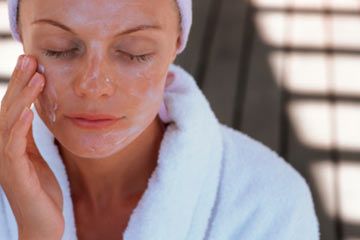
It's not blizzards or floods or twisters that cause the most weather-related deaths in the U.S. -- it's heat. Climate scientists tell us we can expect to see a lot more of sweltering days in North America as record-setting high temperatures continue to show themselves each year. The 2011 heat wave alone is blamed for at least 24 deaths in the U.S., and in Europe as many as 50,000 heat-related deaths are attributed to the 2003 heat wave [sources: Herrmann, National Weather Service].
Short of spending the day inside, and just sweating as you go from your air-conditioned house to your air-conditioned car and office, what can you do? As it turns out, what you eat might help you cope with the summer heat.
Advertisement
Eating a well-balanced, nutritious diet that's rich in fruits and vegetables (and supplements if you fall short) is one of the best ways to stay healthy all year. The right nutrition can also help protect your body from the skin-damaging effects of the sun, from wrinkles to skin cancer, and other summertime maladies -- antioxidants naturally help the body prevent and fix the day-to-day damage the cells of your body endure.
There are studies that suggest supplementing certain vitamins may help you get through the summertime with a little less wilting, or at least a little less sneezing. Let's start with a look at how vitamin C might help keep you cool this summer.
Advertisement

